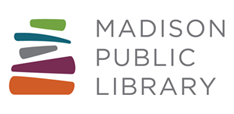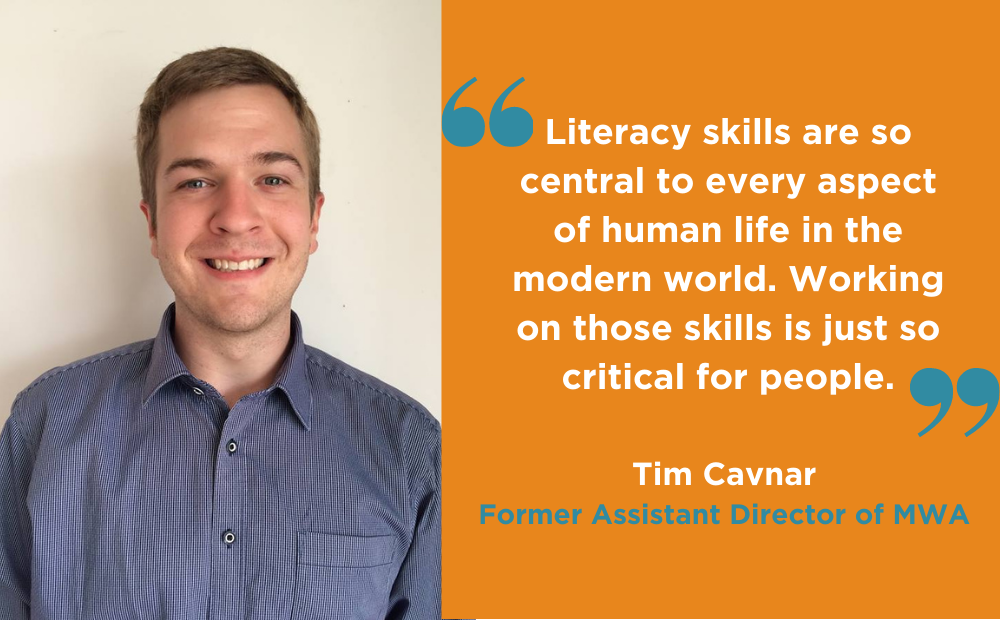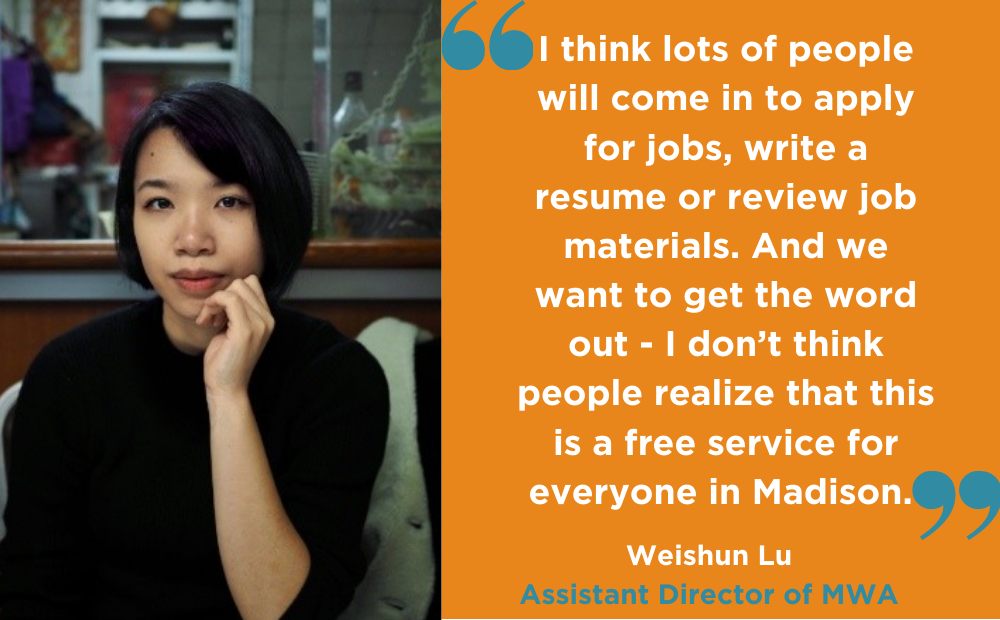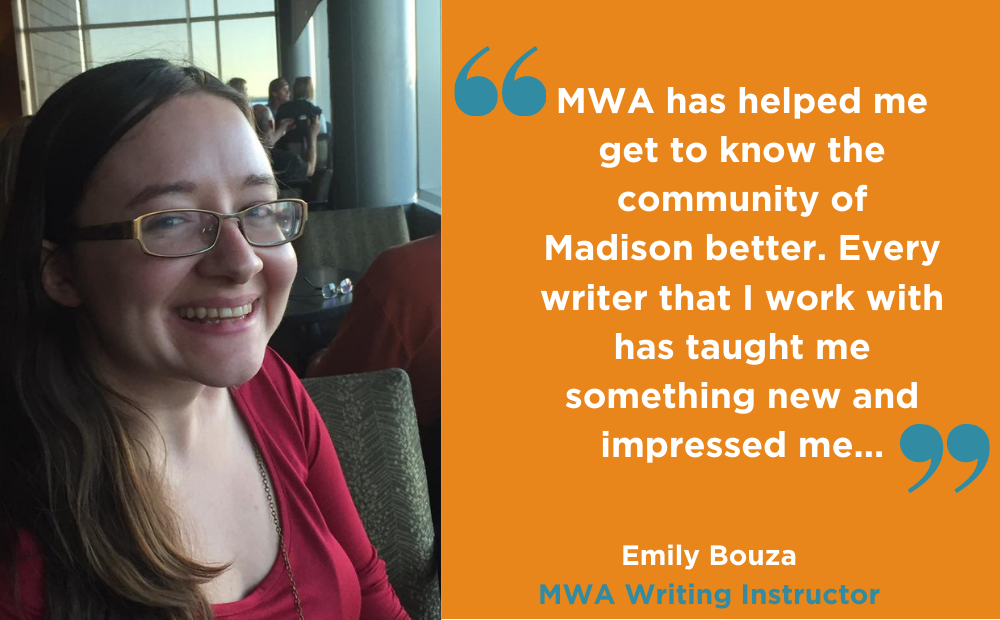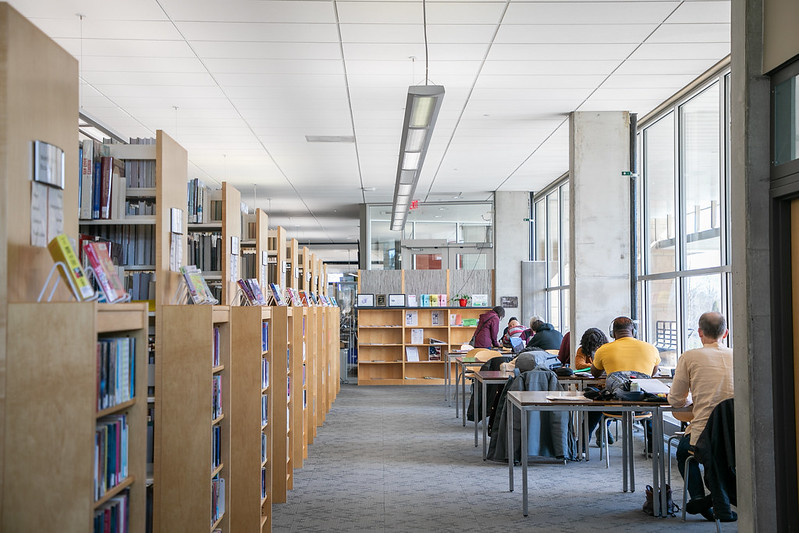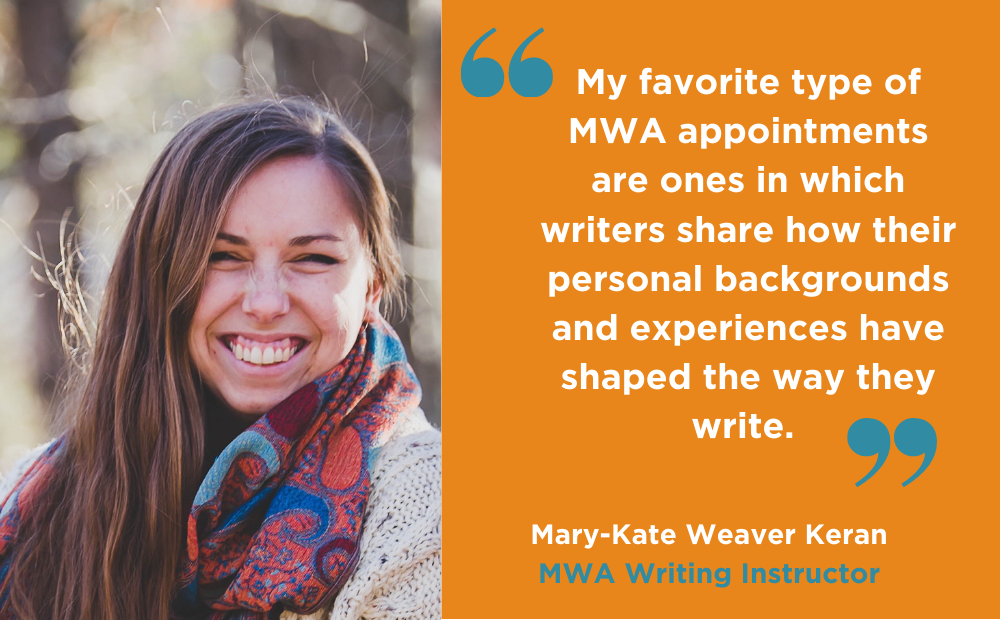Small Start, Big Future
“Literacy skills are so central to every aspect of human life in the modern world. Working on those skills is just so critical for people,” - Tim Cavnar, Former Assistant Director, Madison Writing Assistance.
The history of the Madison Writing Assistance program goes back nearly 20 years to the start of former UW Writing Center Director Brad Hughes’ over thirty year career. Hughes decided to volunteer at his local library in order to help people improve their writing. Over the years, the program has grown and is now a 100% grant-funded organization, which allows them to bring on more instructors and offer the service for free to the community. In a pre-COVID-19 world, the service operated in off-campus locations, including many Madison Public Library locations as well as various neighborhood centers - and served nearly 300 people each year with a staff of 7 instructors.
Inspired Instructors, Motivated Patrons
From the very beginning, the Madison Writing Assistance program has served a variety of writing needs, including but not limited to resumes, cover letters, applications, middle and high school academic writing, poetry, memoirs, fiction and non-fiction books, email writing, Instagram posts, and even wedding vows!
Weishun Lu has worked as a writing instructor for MWA for the past three years and, in fall 2020, became the new Assistant Director for MWA. She can confirm that working with the community is a little different than helping students at UW.
“Library patrons have more interesting assignments. They come to us with very unexpected projects that really challenge me as an instructor.”
Tim Cavnar, former MWA Assistant Director, agrees. “I’ve taught in a lot of different contexts, but as an MWA instructor, it’s by far the most diverse and unpredictable (in a good way) teaching job that I’ve ever had. You never know who’s going to come and sign up and chat with you for an hour, and I love that about the job.
Together in Writing, Together in Community
That diversity of projects means that the writing instructors themselves have to be flexible and ready for anything. Thus, all of MWA’s writing instructors are UW-Madison graduate students who have extensive teaching experience from a variety of backgrounds. A genuine passion for writing is also needed, as MWA instructor Emily Bouza will tell you.
“I decided to work with MWA because I was especially excited to help with this free community program where I would get the opportunity to work with such a diverse group of writers. I find it especially fulfilling to take the time to talk about writing with people who have very busy lives and would not otherwise have the opportunity to discuss their writing with someone. I love that I can take that time to work with them on something as personal as their writing.”
Bouza continues, talking about what she’s enjoyed most about working with Madison-based writers. “MWA has helped me get to know the community of Madison better. Every writer that I work with has taught me something new and impressed me with their stories about their lives and their ambitions. I hope that every community member that I work with feels empowered as a writer."
Community Focused, Equity Minded
Both Madison Public Library and UW-Madison have equity and diversity as part of their ethos, so for the Writing Center to be able to work in the community through public libraries has been essential.
“We want to work for the community and address needs in the community, so being able to connect with MPL over the years has just been awesome and formative for us as an organization,” said Cavnar. “Everything the university does should be for the benefit of the community, so the fact that we’ve been able to kind of leverage library locations around town and access more of the community as a result is really cool.”
In terms of addressing community needs, both MWA and MPL work to provide resources for employment and education. The majority of writing projects brought to MWA in Madison Public Library locations are job search materials, including resumes and cover letters, with application writing and school-based writing for middle school, high school and college coming in a close second and third in the graphic shown here for the fall 2019 and spring 2020 sessions. Lu anticipates that job search appointments will only increase as a result of COVID-19.
“I think this will be a bigger problem after COVID. I think lots of people will come in to apply for jobs, write a resume or review job materials. And we want to get the word out - I don’t think people realize that this is a free service for everyone in Madison,” said Lu.
COVID-19 Challenges, Inclusive Services
The Madison Public Library setting supports MWA’s efforts by providing free public computing, Wi-Fi, multiple databases for research, newspapers, and hands-on assistance in finding job search materials.
“I like that they are in libraries all over Madison. I have been bouncing around to a few different ones and enjoyed the experiences at each one,” one patron said.
For MWA, their 2020 summer session for writing support had to transform to keep up with the move to virtual caused by COVID-19. MWA offered writing assistance online, via email and over the phone in 45 minute sessions, which made the service available to a larger number of patrons, including those who were unable to attend appointments in person in the past due to transportation barriers or disabilities.
“I love it. I can explain what I’m struggling with in my writing, and within 30 minutes (of working with MWA) I have all of my questions answered and a plan for the next steps,” said another patron
Real People, Real Stories
When asked how she thinks Madison Writing Assistance has had an impact in the community, Lu said, “My patrons who come to MWA - their writing is not separate from their lives - their writing is very much part of their work. I think in supporting their writing, I am supporting their work and their social lives. I sometimes have single, working moms who are taking classes at night, and I know that if I can help them finish their assignment in an hour, then they can go home and deal with the other stuff (in their lives). So, I do think that Madison Writing Assistance is a different sort of support for the community - that’s it not just about improving your writing.”
Mary-Kate Weaver Keran, who has been a writing instructor for more than three years and with MWA for the past year, shares here why it’s been a fulfilling experience for her. “My favorite type of MWA appointments are ones in which writers share how their personal backgrounds and experiences have shaped the way they write. These are always just such a nice reminder of how diverse, beautiful, complex, and personal writing and language can be.”
Cavnar also shared how he has seen Madison Writing Assistance have an impact on the lives of patrons. “The thing that comes to mind the most amid the COVID-19 crisis and the skyrocketing unemployment rates we’re seeing is that for people to be able to access support for job writing - that’s incredible. Writing skills are everywhere and it’s sort of an invisible force. We don’t think about or necessarily talk about how important it is to be able to write a good work email - how much that’s going to affect how your colleagues or supervisor or boss perceives you. And it plays out in so many different ways and in so many aspects of our lives. Our MWA sessions are just a really unique, creative space where people can come, share their ideas and feel welcome.”
The library offers session series along with the academic calendar. See the latest session information and sign up for an appointment.
The Madison Writing Assistance program is funded by generous grants from the Evjue Foundation, the UW Anonymous Fund, and Altrusa International of Madison. Additional funding and administrative support is provided by the UW-Madison English Department and by the UW-Madison Writing Center.
- Updated July 2022
